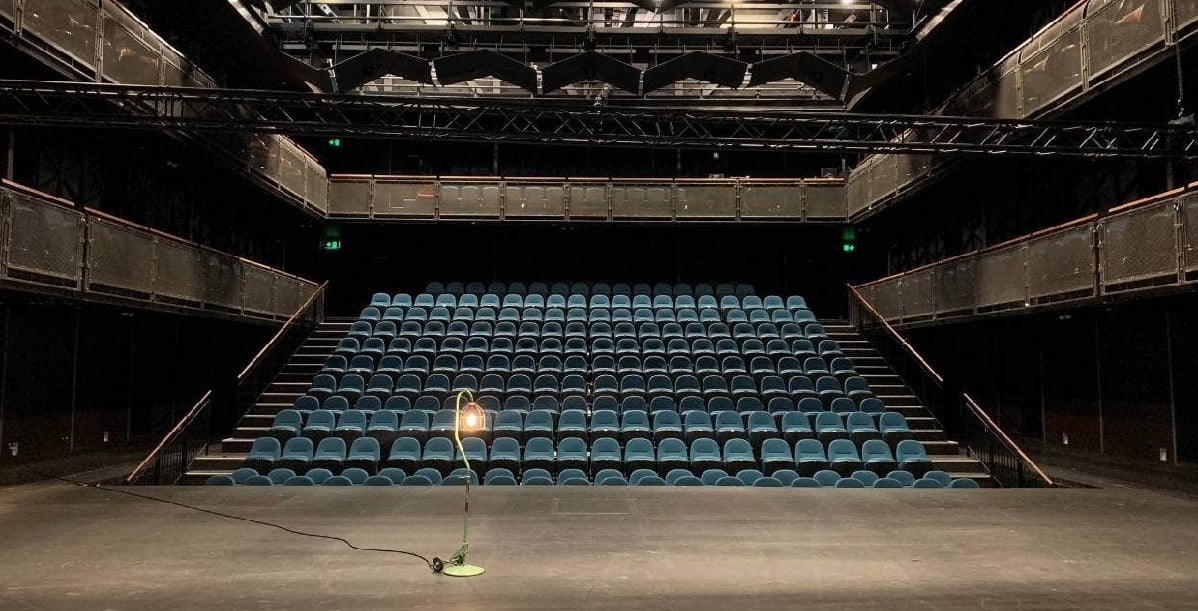
ACE pandemic response was a lifeline for the arts, new report says
The Emergency Recovery Fund, launched by ACE the day after the country went into lockdown in March 2020, receieved 14,000 applications and distributed £105m.
A report on the impact of Arts Council England’s Emergency Recovery Fund (ERF) has found it had a positive effect on job protection and the survival of arts organisations during the worst of the pandemic.
The multi-million pound fund, which received just short of 14,000 applications, was launched the day after the country went into a national lockdown in March 2020.
A total of 7,484 individual creative practitioners and 2,374 organisations secured funding worth £105.5m – an applicant success rate of 71%.
READ MORE:
- Hundreds of arts organisations rejected for emergency funding
- Just over half of emergency arts funding has been distributed
As well as funding National Portfolio Organisations, the ERF – supported by DCMS and HM Treasury – invited applications from individuals and organisations outside the ACE portfolio.
Individuals could apply for up to £2,500 while non-NPOs could access a maximum of £35,000. There was no upper limit set for NPOs.
Nearly half the funding delivered went to non-NPOs (£47m), with NPOs receiving £33m.
Individuals were awarded £17m in total and a further £8m went to benevolent funds.
Sample questions
As part of the ACE commissioned report by the research company SQW, a sample of 126 applicants were surveyed in November and December 2021, including 28 who did not receive any funding.
At the time of the survey, some 75% of organisations said they had at least the same number of employees as in March 2020.
Of the funded applicants, 42% thought they would not have survived financially for six months without the fund. Of 51 organisations surveyed, 31 said they used their ERF money to pay staff salaries.
Several organisations said that their ERF funding enabled them to continue or expand their work with freelancers, such as bringing in support for digital activity and workshops.
One organisation quoted anonymously in the report said: "The ERF kept us alive and got us through to 2021.
"If it wasn't for the ERF, we would've lost all the good people we work with and I would've had to go get another job."
Of the unsuccessful applicants surveyed, all but one was still trading either as an organisation (all 12 respondents) or as individuals (15 out of 16).
Digital innovation
The survey found that many recipients used their funding to develop digital activities. This was undertaken to remain connected to audiences and the local community, as well as to develop staff digital skills.
Nearly half of the successful applicants shared their thoughts on the move to online and digital activity.
A dance company surveyed said: "We’ve been able to take all the digital ambitions we had and accelerated them. We've taken the time to think and upskill ourselves in technology, adding another string to the bow over the course of the pandemic."
For many, this digital development is now seen as an integral part of their organisational approach as they plan for the future.
One respondent said: "The whole approach moving forward is that digital is now part of the landscape. We need to continue looking at our digital offer.
"What I don't want to do is completely abandon the work that we have done, but we do want to approach things differently to become more sustainable and resilient."
Support for theatre
Nearly a quarter of the awards (£25.8m) were for organisations and individuals in the theatre sector. The combined arts received the second biggest share of support with funding of £19.2m.
The visual arts (£15.9m) and music (£14.2m) were the next most supported. Dance received £9.2m, Museums £5.8m, and Literature £3.3m.
London was awarded the biggest share of funding (£34m), with 3,107 successful individuals and 686 successful organisations.
The capital was also home to organisations that received some of the largest grants, including English National Ballet (£1.3m) and Sadlers Wells (£1.5m).
Grantium gripes
While feedback about the fund itself and the speed it was implemented was largely positive, ACE’s much-maligned funding application portal, Grantium, was singled out for criticism by many of those surveyed.
The report’s authors state: "Respondents across all groups recognised challenges with ACE’s application portal, Grantium.
"Issues with Grantium affected each stage of the application process, with poor design impacting how applicants were able to understand information, develop submissions and access funds."
Describing the experience of using Grantium, one organisation said: "As soon as you log in, it seems really complicated. You don't know whether you've done it right – it is like they're talking in code or something."
ACE has previously said it is committed to improving the usability of the portal, which was launched in 2016 and has been widely criticised ever since.
Join the Discussion
You must be logged in to post a comment.